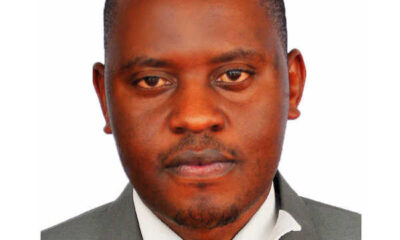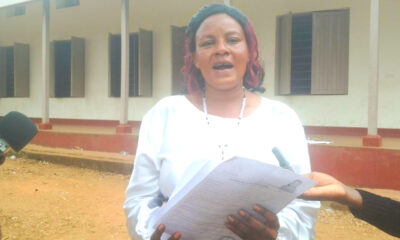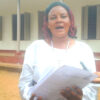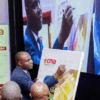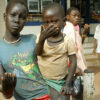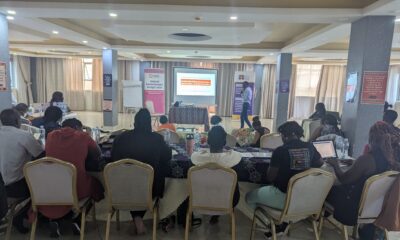News Feature
Africa’s Quiet Revolution: Nations Lead Global Charge in Gender Parity, Defying Expectations
While global progress on gender equality often feels sluggish, a quiet revolution is unfolding across Africa. A new report by the World Economic Forum (WEF), the 2025 Global Gender Gap Report, reveals that many African nations are not only setting their own ambitious priorities for gender equality but are, in several critical areas, advancing faster than the global average. Twenty African countries now proudly stand among the top 100 nations worldwide that have significantly narrowed their gender gap.
Saadia Zahidi, Managing Director of the World Economic Forum, underscores the profound economic implications of this progress. “Economies that have made decisive progress towards parity are positioning themselves for stronger, more innovative, and more resilient economic progress,” she stated. Africa, as a region, now ranks sixth globally with an overall gender parity score of 68.0%, demonstrating a commendable 5.6 percentage point improvement since 2006. This far outpaces the global average increase of just 0.3 points between 2024 and 2025.
Namibia Leads the Charge with Historic Female Leadership
Namibia continues to be a continental beacon, maintaining its position in the global top 10 for gender parity. Ranked eighth globally with a score of 81.1%, Namibia has appeared in this elite group six times since 2006. Its consistent performance is attributed to robust legal frameworks, progressive gender quotas, and sustained political representation for women.
A truly historic milestone was achieved in March when Namibia became the first African nation to simultaneously have women holding its three most senior political positions: President, Vice President, and Speaker of the National Assembly. This groundbreaking trio is further complemented by a cabinet where over 60% of members are women, marking Namibia’s first-ever female-majority cabinet.
“When women hold the reins of power, policy priorities often shift toward equity and inclusion,” observes Anita Ogega, an independent gender advocate and researcher at Kisii University. “But what excites me more is the ripple effect, young people are watching. As they grow up seeing women lead, that visibility becomes their norm. And that’s the future I dream of.”
Rwanda and Botswana: Models of Political and Economic Inclusion
Rwanda continues to lead the continent in political parity, ranking 12th globally. With a remarkable 61.3% of its parliamentary seats held by women, Rwanda’s success is now bolstered by a robust mentorship ecosystem that leverages a highly favourable policy landscape. “Leadership doesn’t start at the top,” affirms Claire Uwineza, a Rwandan mentor working with girls and young women in governance. “It begins when women are told they belong in decision-making.” The report highlights Rwanda as the only economy in Africa to achieve full parliamentary parity, with South Africa (81%) and Cape Verde (80%) close behind.
Botswana, meanwhile, shines as a global leader in economic participation, ranking first worldwide in this category with an impressive score of 87.3%. Bogolo Kenewendo, former investment minister and current Minister of Minerals and Energy, advocates tirelessly for women’s economic inclusion, viewing it as both a policy outcome and a strategic imperative. “When we don’t fully use the skills and talents of half our population, we are wasting potential,” she noted in a UN Women interview. Botswana’s progress is driven by supportive SME policies, high female education levels, and targeted efforts to integrate women into leadership roles.
“In many ways, Botswana’s success story is a rebuttal to those who think gender equity must come at the expense of growth,” says Ogega. “We need to stop framing inclusion as charity and start seeing it as a competitive advantage. This is not about fixing women—it’s about fixing systems that sideline productivity.” Alongside Liberia and Eswatini, Botswana has closed over 85% of its gender gap in labour-force participation, with high female representation in senior roles.
Emerging Success Stories and Persistent Challenges
Beyond the consistent frontrunners, other African nations are showing remarkable progress. Benin recorded the most significant improvement in Africa this year, climbing 21 places in the global rankings. This surge follows the rollout of a national gender strategy in 2021, yielding results in rural education and women’s access to public sector jobs. Zambia also made notable gains, rising 13 places due to policy reforms promoting financial inclusion and constitutional equality. In Ethiopia, women now hold an unprecedented 83.3% of ministerial positions, a factor in the country’s rise to 75th globally.
However, the path to parity is not uniformly smooth. Togo experienced the steepest global drop, falling 44 places due to reduced political representation and declining female labour participation. Kenya and Mozambique also saw declines, primarily linked to delays in implementing constitutional gender quotas, low leadership representation, and persistent rural-urban divides in girls’ education.
Despite these setbacks, the report emphasises that African countries are making the most significant strides in political empowerment, closing 22.2% of the political gender gap on average, ranking fifth globally. Women now hold 40.2% of ministerial roles and 37.7% of parliamentary seats across the continent, figures that have more than doubled since 2006.
While economic participation still shows wide disparities, with female labour-force participation ranging from 39.2% in Senegal to 80.7% in Nigeria, and female representation in senior economic leadership varying wildly (11.6% in Chad to 69.9% in Burkina Faso), the underlying momentum is clear.
Moreover, the report highlights the critical work being done at the grassroots. In Tanzania, tech mentor Pendo Vestine is actively bridging the digital gender divide through girl-centred coding and innovation bootcamps. “For girls in tech, we must do more than hand them devices, we must give them space to lead,” Vestine asserts, epitomising the bottom-up change crucial for long-term shifts in education, skills, and opportunities across the region.
“If current momentum holds, especially with more countries embedding gender metrics into national development plans, we could see several African economies crack the global top 10 within the next decade,” predicts Ogega. She stresses the urgent need for “stronger accountability mechanisms, better gender-disaggregated data, and serious investment in care infrastructure to free up women’s time and potential,” ensuring that Africa’s leadership in gender equality continues to accelerate.
Comments






